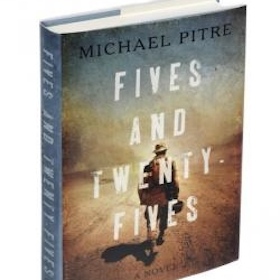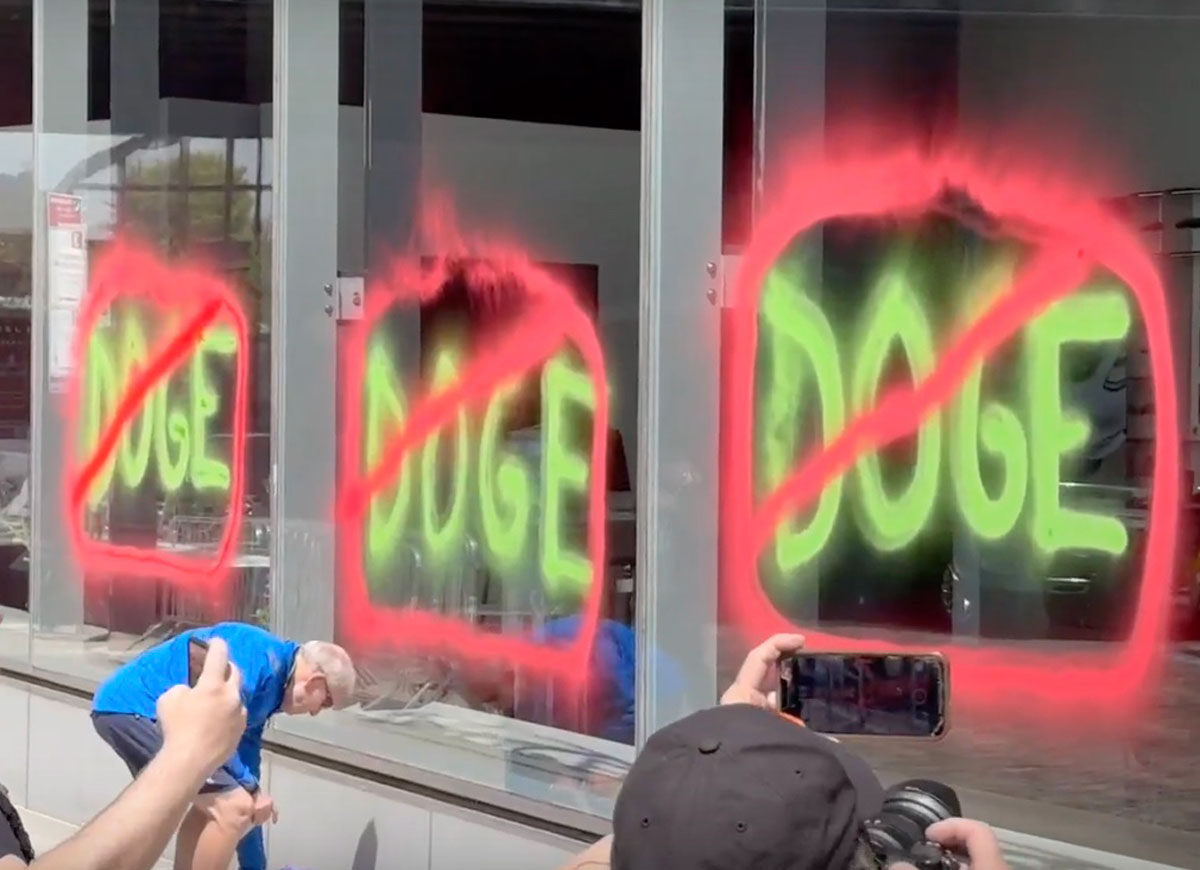'Fives And Twenty-Fives' Review: Michael Pitre Explores Life After War

3.5/5
Ten years later, there are plenty of books — fiction and non — about the Iraq War. Very few of them have the credibility of Fives and Twenty-Fives. Author Michael Pitre was in the war himself just a few years ago, and brings a strange level of realism to the proceedings. Fives and Twenty-Fives isn’t about explosions or unreported heroism; it’s about the mundane moments and hopelessness attached to America’s longest war.
The narrative jumps back and forth between timelines, from the bomb squad defusing bombs and laying pavement to the present, after it’s over, with a small amount of the survivors dealing with being back in the world. Donovan’s platoon routinely finds potholes in the road, in the sand, everywhere. They go out in fives and twenty-fives (at five meters, vehicles are likely to be damaged; people at twenty-five meters) to check if there’s a bomb — there always is — and they defuse it and fill the hole with concrete. They’re in a vulnerable position and open to mortar or sniper attack. They lose people along the way.
In the present, the narrative follows soldiers dealing with PTSD, unable to function the way they used to. There’s alcoholism and fights, tempers and routines. Doc Pleasant still packs his med-kit wherever he goes. Donovan avoids everyone at work and school. The constantly shifting time periods are overly structured and too frequent; it’s as if there are two different novels fighting each other for attention and neither ends up picking up much steam. That’s unfortunate because there aren’t many novels out there that are as significant as this one; while there really are two different novels pressed to one, they are both enthralling stories, it’s just the way it’s put together that makes it come off staccato and jagged.
There are three points that are very socially relevant in Fives and Twenty-Fives. Usually when fiction wants to prove a point, it often overcompensates — it’ll lack subtlety and come off as preachy and trite. Pitre avoids all of these pratfalls masterfully, making his points organically and without finger wagging.
The first point regards the nature of the war itself. Donovan’s platoon is overworked and highly aware of the dangers of their job. They also know there’s almost no point in what they’re doing. There are always more potholes, more bombs, more attacks. It’s no longer 2003; the winning of hearts and minds is a concept that has long been abandoned. The flourish and accomplishment — the thrill of success — doesn’t exist here. Not anymore.
Donovan and co. do see action. They sometimes avoid it. There’s no primary villain, just missions to be accomplished and orders to be followed. To further bring that home, each of the primary characters receive their own focused chapters, and they’re all done in the first person. There’s no omniscient narrator to give context to the missions the soldiers are given; we’re as in the dark as they are. On that point, each character narrates very clearly, but Pitre breaks his chapters up with Facebook messages, memos and thoughts that add context and build these characters and their world. These context clues essentially make sure that the world they live in is a genuine one. This one.
Pitre doesn’t pull punches. Often the soldiers can come off as angry, aloof or even dumb. We’re given a private Facebook message written by Doc; it’s one long run on sentence with horrible syntax, grammar, and entirely lacking in punctuation. It’s also exactly what you’d see on any comment section of any website, or in your own Facebook mailboxes themselves. It’s a small addition but it’s candid, and ends up being a reminder that while these characters aren’t real, the parts they’re made up of are.
The second point Pitre makes is the most important: the difficulty of the return home. The soldiers who return don’t acclimate well back in the States. There’s PTSD, of course, but something else too. It’s a change that cannot be undone. It’s like a sad revelation through shared experience that nobody can understand unless you were there too, and even then it doesn’t even seem to be something tangible or something that could be explained verbally. People largely gawk when Donovan tells them he was in the war. They ask him questions and get mad when his answers are detailed and lack a clean Hollywood finish. They get uncomfortable because of war’s truths and because they’re seeing a man unravel a part of himself that has been made ugly.
We’ve yet to figure out how to do right by our veterans in this country. Like Doc Pleasant, many go on to abuse drugs or alcohol; others deal with maladies both physical and psychological. And you never hear about a veteran coming home to financial peace of mind. Pitre puts forth the idea of acknowledgement getting confused with compensation. Giving veterans a day out of the year is a nice thing, but it doesn’t actually erase what’s happened to them or what they’re going through now. Pitre again could easily have gotten on a high horse and shamed us. He doesn’t. Nor does he offer any solutions. It isn’t that kind of novel. The characters are just trying to get by on their own, and at no point are we led to believe it’ll be happily ever after.
It’s that innate sentimentality that is Pitre’s greatest asset. He writes with love entwined with truth. There are a half a dozen times where a character is about the make another bad decision and inwardly you clench and hope that he won’t go down this road again – you feel as Pitre probably did writing it. But he, like we, know the fact of it is that it’s going to happen again. And again.
The final particularly relevant point made in the book is the reality of what US soldiers leave behind in Iraq. Pitre explores this idea with the character of Kateb, the third narrator in the story. Kateb is a native Afghani, wrung into being an interpreter. In exchange for his services, he was promised a student visa to the States so he could study at University. Like many native interpreters, he was promised protection, compensation and help immigrating. None of this happened; there were horrible repercussions for Kateb and his real world counterparts.
Kateb (given the codename “Dodge,” for the car) is a huge Metallica fan and loves all things American pop culture. They say that our pop culture was what won us the Cold War, and many of us hope that the situation in the Middle East will end the same way. Pitre shows us that while that might work for some civilians, it’s not the case for most. Kateb keeps a tattered copy of Huck Finn in his back pocket. As a student at Baghdad University, he was writing his thesis on Mark Twain’s novel. His professor was killed in a terrorist attack; Kateb lost the document when he had to flee the city.
Depending on how you read it, the narrative can be one of increasingly tense and emotional cliffhangers or a text whose conceit makes it fractured and disorganized. There’s a good chance that you’ll feel some drag near to the middle, but there is a payoff coming. People tend to read fiction for fun and non-fiction for fact. I can’t recommend this novel as a pleasure, though it is clearly well written. If anything, one should read Fives and Twenty-Fives to lend empathy to people who have given much and received nothing in return.
RELATED ARTICLES
Get the most-revealing celebrity conversations with the uInterview podcast!





Leave a comment